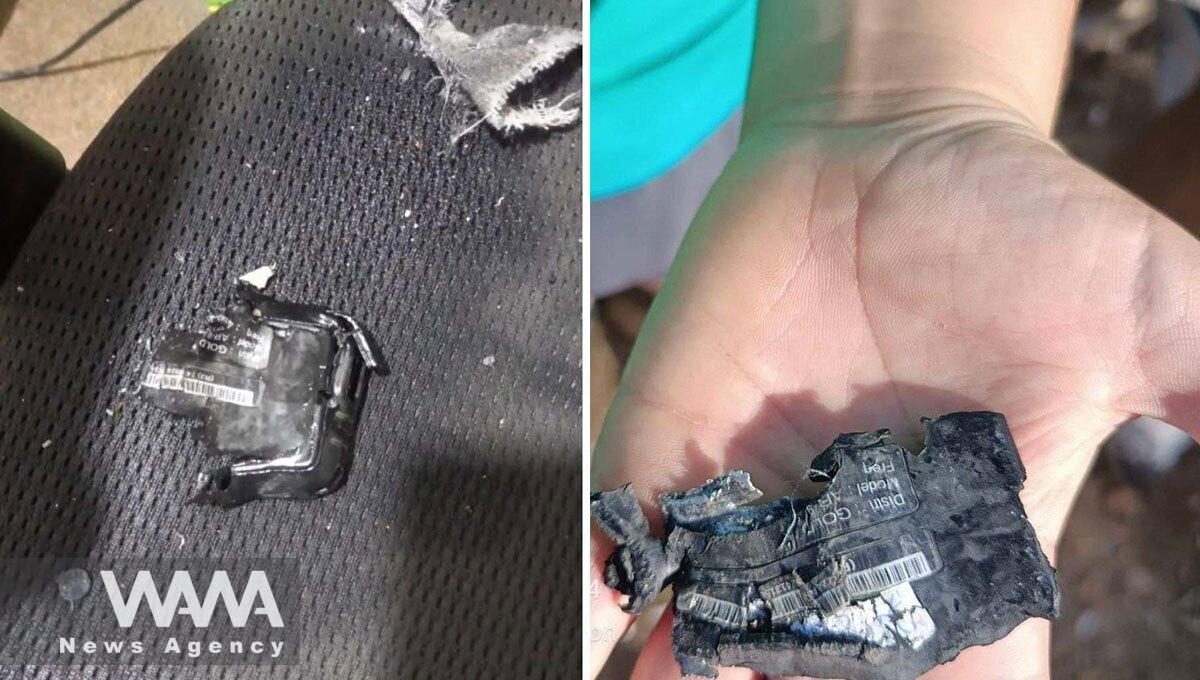Israel’s Terrorist Attack on Hezbollah in Lebanon
WANA (Sep 17) – Reports indicate simultaneous explosions in Hezbollah’s communication devices, including pagers, mobile phones, and radios, in areas of southern Lebanon, the southern suburbs of Beirut, and eastern Lebanon.
These explosions have so far resulted in over 2,750 injuries and eight deaths, including a child, and the toll is still rising. International media have reported that this incident has escalated significantly, and hospitals in Lebanon are now on high alert.
Among the injured is Mojtaba Amani, Iran’s ambassador to Lebanon. According to the information received, Mr. Amani, a user of these pagers, sustained minor injuries and is in stable condition. The Iranian embassy in Beirut has confirmed that he is in good health and not in danger.
📽️Transfering of #Iran‘ s ambassador to the hospital in #Beirut
Mojtaba Amani, Iran’s ambassador to #Lebanon, was injured due to a #pager explosion. pic.twitter.com/Eh0ZHkGqHk
— WANA News Agency (@WANAIran) September 17, 2024
Lebanon’s Ministry of Health has declared a state of emergency for all hospitals across the country, and the Lebanese Prime Minister has called on all relevant agencies to provide necessary assistance to the injured. Some hospitals in southern Lebanon and Beirut’s suburbs have asked people to donate blood.
Possibility of Cyber Attack and the Role of Foreign Intelligence Services
Following this incident, security analysts quickly speculated about the possibility of a sophisticated cyberattack. Some security sources believe that these explosions may have been caused by Israeli cyber infiltration into Hezbollah’s communication systems with the help of advanced hacking technologies. Modern hacking tools can infiltrate communication devices like mobile phones and pagers, turning them into tools for direct attacks or even explosions.
These attacks are reminiscent of previous cyberattacks on critical infrastructure in the Middle East, including the 2010 attack on Iran’s nuclear centrifuges and assaults on the country’s oil and gas infrastructure. Just as Israel and its allies were identified as the culprits in those incidents, it is possible that the same actors were behind this attack.
Ali Abdi, a prominent Iranian security analyst, stated, “The operation involving the explosion of pagers exceeds Israel’s capabilities, and it is likely that U.S. intelligence services, like the NSA and Pentagon’s Cyber Command, were involved in this operation.”

Explosions in Hezbollah’s communication devices, including pagers
The timing of these explosions, especially after claims about Hezbollah’s efforts to assassinate a senior Israeli defense official, suggests that this could be Israel’s retaliation for that attempt.
Some analysts see this incident as part of the growing cyber confrontation between Hezbollah and Israel, which could have broader implications for the region.
A Warning Ignored: Mobile Phones as Silent Killers
Hezbollah’s Secretary-General, Sayyed Hassan Nasrallah, had repeatedly warned about the dangers of misuse of mobile phones and communication devices. He described these devices as “silent killers,” saying, “These mobile phones and communication tools are the enemy’s spying devices. They transmit vital information to the enemy, and more attention must be paid to this issue.”
In his speeches, he warned that Israel doesn’t need spies, as these devices themselves serve as espionage tools. He also urged Hezbollah members and the public to disconnect internet-connected surveillance cameras, as these too can easily transmit information to the enemy.
Sayed Hassan Nasrallah is unharmed
According to reports from Israel’s Channel 13, Sayed Hassan Nasrallah, the Secretary-General of #Hezbollah, was not harmed during today’s #cyberterrorism operation in #Lebanon and is in good health. pic.twitter.com/qS9MXHcJwe
— WANA News Agency (@WANAIran) September 17, 2024
Hezbollah’s Reaction: Israel is Responsible
Hezbollah issued a statement holding Israel directly responsible for these attacks, stating, “We hold the Israeli enemy fully responsible for this criminal assault, which has affected civilians and caused the death and injury of many people.” Hezbollah’s statement does not view the incident as a technical malfunction or internal error, but rather as a direct attack on Lebanon’s resistance structures.
The organization announced that security and technical investigations are underway to determine the exact cause of the explosions. Given the level of technology involved, the final conclusions of these investigations could have far-reaching geopolitical consequences for the region, possibly affecting areas beyond Lebanon’s borders.













